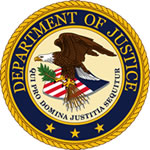 In December, the Federal Circuit invited the United States to address the issue of whether Consumer Watchdog had Article III standing to pursue an appeal of a decision by the Board of Patent Appeals and Interferences affirming the patentability of U.S. Patent No. 7,029,913, which is assigned to the Wisconsin Alumni Research Foundation (WARF). The appeal arose from an inter partes reexamination of the '913 patent that Consumer Watchdog, which describes itself as a not-for-profit public charity dedicated to providing a voice for taxpayers and consumers in special interest-dominated public discourse, government and politics, filed in 2006 (see "Consumer Watchdog Argues That WARF Stem Cell Patent Is Invalid under § 101").
In December, the Federal Circuit invited the United States to address the issue of whether Consumer Watchdog had Article III standing to pursue an appeal of a decision by the Board of Patent Appeals and Interferences affirming the patentability of U.S. Patent No. 7,029,913, which is assigned to the Wisconsin Alumni Research Foundation (WARF). The appeal arose from an inter partes reexamination of the '913 patent that Consumer Watchdog, which describes itself as a not-for-profit public charity dedicated to providing a voice for taxpayers and consumers in special interest-dominated public discourse, government and politics, filed in 2006 (see "Consumer Watchdog Argues That WARF Stem Cell Patent Is Invalid under § 101").
 In a brief submitted by the United States on January 17, the government argued that Consumer Watchdog lacked standing, and therefore, that its appeal should be dismissed. Noting that unless a party has a concrete and particularized interest in the question presented, neither the Federal Circuit nor any other Article III court had the power to render judgment. "Because Consumer Watchdog fails to identify any concrete or particularized interest in the patentability of the invention claimed in . . . the '913 patent[]," the government declared that "it lacks standing to invoke this Court’s jurisdiction." The brief explains that "Consumer Watchdog does not suggest that it is an actual or prospective competitor or licensee of . . . WARF[], nor does it assert any concrete interest in the invention claimed in the ’913 patent."
In a brief submitted by the United States on January 17, the government argued that Consumer Watchdog lacked standing, and therefore, that its appeal should be dismissed. Noting that unless a party has a concrete and particularized interest in the question presented, neither the Federal Circuit nor any other Article III court had the power to render judgment. "Because Consumer Watchdog fails to identify any concrete or particularized interest in the patentability of the invention claimed in . . . the '913 patent[]," the government declared that "it lacks standing to invoke this Court’s jurisdiction." The brief explains that "Consumer Watchdog does not suggest that it is an actual or prospective competitor or licensee of . . . WARF[], nor does it assert any concrete interest in the invention claimed in the ’913 patent."
 While noting that "Congress may -- and commonly does -- authorize administrative agencies to take action or issue decisions at the behest of parties who lack any particularized interest in the subject matter of the proceeding," the government states that "[w]hen the petitioner in such a proceeding later seeks judicial review in an Article III court, . . . 'the constitutional requirement that it have standing kicks in.'" The government suggests that in many cases, the petitioner's standing to appeal will be apparent. For example, the brief notes that if the Board had determined that the '913 patent was unpatentable, "there would have been little doubt regarding WARF's standing to appeal that adverse decision." However, the government argues that Consumer Watchdog cannot appeal the Board's decision affirming the patentability of the '913 patent "unless it can identify some particularized, real-world consequence of that decision for Consumer Watchdog itself." Although "Consumer Watchdog is plainly adverse to WARF and believes the ’913 patent to be invalid," the brief asserts that this alone is insufficient to demonstrate the existence of a justiciable case or controversy. The government explains that Consumer Watchdog "claims no commercial interest in the subject matter of the ’913 patent; it faces no plausible risk of an infringement claim; it is neither a prospective competitor nor a prospective licensee of WARF[; n]or does Consumer Watchdog assert any basis for associational or representative standing." As a result, the government contends that Consumer Watchdog lacks standing to appeal the Board's reexamination decision because, "as far as the organization's own concrete interests are concerned, it does not matter whether PTO got the right answer."
While noting that "Congress may -- and commonly does -- authorize administrative agencies to take action or issue decisions at the behest of parties who lack any particularized interest in the subject matter of the proceeding," the government states that "[w]hen the petitioner in such a proceeding later seeks judicial review in an Article III court, . . . 'the constitutional requirement that it have standing kicks in.'" The government suggests that in many cases, the petitioner's standing to appeal will be apparent. For example, the brief notes that if the Board had determined that the '913 patent was unpatentable, "there would have been little doubt regarding WARF's standing to appeal that adverse decision." However, the government argues that Consumer Watchdog cannot appeal the Board's decision affirming the patentability of the '913 patent "unless it can identify some particularized, real-world consequence of that decision for Consumer Watchdog itself." Although "Consumer Watchdog is plainly adverse to WARF and believes the ’913 patent to be invalid," the brief asserts that this alone is insufficient to demonstrate the existence of a justiciable case or controversy. The government explains that Consumer Watchdog "claims no commercial interest in the subject matter of the ’913 patent; it faces no plausible risk of an infringement claim; it is neither a prospective competitor nor a prospective licensee of WARF[; n]or does Consumer Watchdog assert any basis for associational or representative standing." As a result, the government contends that Consumer Watchdog lacks standing to appeal the Board's reexamination decision because, "as far as the organization's own concrete interests are concerned, it does not matter whether PTO got the right answer."
In response to Consumer Watchdog's argument that there is no standing problem because Congress and the President gave the courts the power to resolve such disputes, the brief counters that "Congress did not give third-party requesters a right to obtain reexamination of an issued patent, but only the right to request reexamination," adding that Congress also specified that Office's decision whether to grant such a request "shall be final and non-appealable" (emphasis in brief). Thus, the government argues that "the essential constitutional requirement remains that a party invoking this Court’s jurisdiction must have some concrete stake in the outcome," and with respect to the Board's decision regarding the '913 patent, Consumer Watchdog had no such stake in the outcome.
In the brief's final section, the government suggests that the Federal Circuit "may [also] wish to make clear in dismissing this case for lack of Article III jurisdiction that appeals from PTO post-grant proceedings are not necessarily governed by the same Article III inquiry that governs the availability of declaratory judgment relief in federal district courts." The brief explains that:
The question is important because competitors and other likely users of the AIA's inter partes review and post-grant review procedures may be loath to commence such proceedings if they believe that this Court's review will only be available in circumstances in which a conventional declaratory judgment action for patent invalidity would otherwise lie -- particularly given the AIA's strict statutory estoppel provisions.
Responses by Consumer Watchdog and WARF to the United States brief will be covered in subsequent posts.